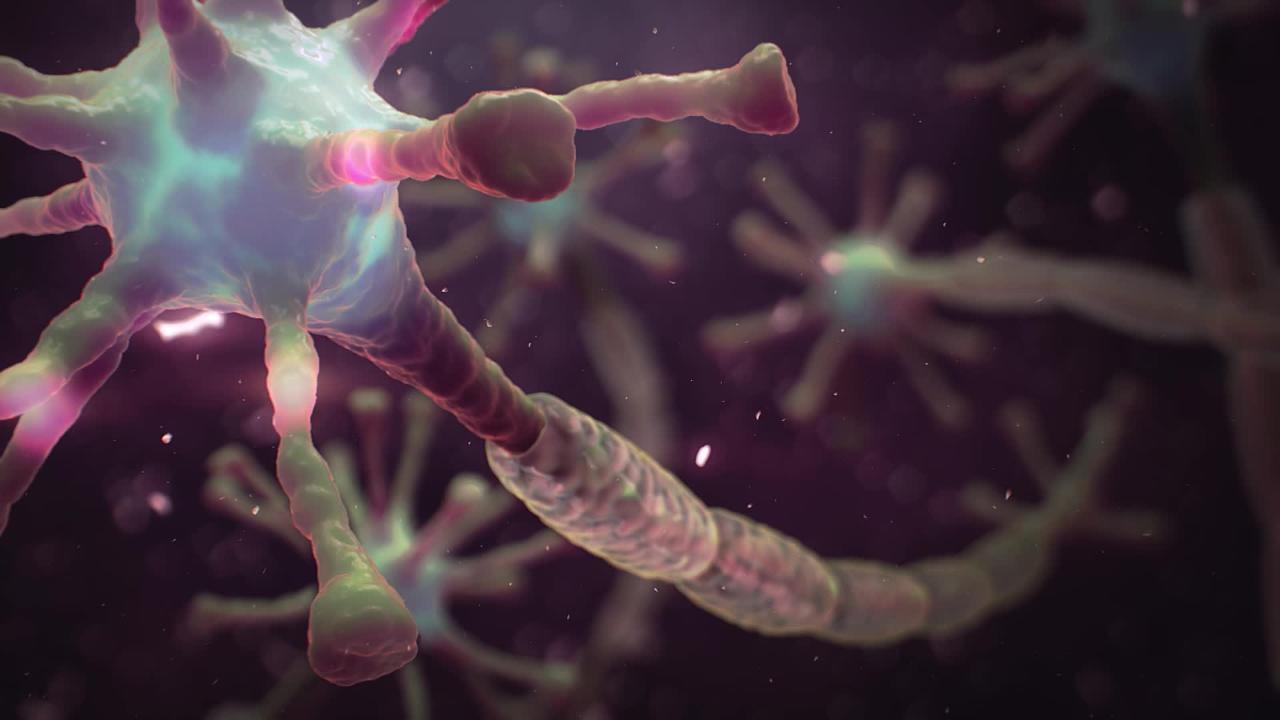
Demyelination is a medical term that might sound complex, but understanding it is crucial. Demyelination refers to the damage or loss of the myelin sheath, a protective covering that surrounds nerve fibers in the brain and spinal cord. This sheath is essential for the proper functioning of the nervous system. When it gets damaged, nerve signals slow down or stop, leading to various neurological problems. Conditions like multiple sclerosis, Guillain-Barré syndrome, and chronic inflammatory demyelinating polyneuropathy are linked to demyelination. Symptoms can range from muscle weakness and numbness to vision problems and cognitive issues. Knowing more about demyelination helps in recognizing early signs, seeking timely medical advice, and understanding treatment options. Let's dive into 28 key facts about demyelination that will shed light on this important topic.
What is Demyelination?
Demyelination is a process where the protective covering (myelin sheath) of nerve fibers in the brain, spinal cord, and optic nerves gets damaged. This can lead to various neurological problems. Here are some intriguing facts about demyelination.
-
Myelin Sheath: The myelin sheath acts like insulation around electrical wires, helping nerve signals travel quickly and efficiently.
-
Multiple Sclerosis (MS): MS is the most common demyelinating disease, affecting millions worldwide.
-
Symptoms: Symptoms of demyelination can include vision loss, muscle weakness, and coordination problems.
-
Autoimmune Attack: In many cases, demyelination is caused by the immune system mistakenly attacking the myelin sheath.
Causes of Demyelination
Understanding what triggers demyelination can help in managing and potentially preventing it.
-
Genetics: Some people are genetically predisposed to demyelinating diseases.
-
Infections: Certain viral infections, like Epstein-Barr virus, can trigger demyelination.
-
Environmental Factors: Lack of sunlight and low vitamin D levels are linked to higher risks of demyelination.
-
Toxins: Exposure to certain chemicals and heavy metals can damage the myelin sheath.
Diagnosing Demyelination
Early diagnosis is crucial for managing demyelinating diseases effectively.
-
MRI Scans: MRI scans are commonly used to detect areas of demyelination in the brain and spinal cord.
-
Lumbar Puncture: This procedure can help diagnose demyelinating diseases by analyzing cerebrospinal fluid.
-
Evoked Potentials: These tests measure electrical activity in the brain in response to stimuli, helping to identify nerve damage.
-
Blood Tests: Blood tests can rule out other conditions that mimic demyelination symptoms.
Treatment Options
While there's no cure for demyelination, various treatments can help manage symptoms and slow disease progression.
-
Steroids: Steroids can reduce inflammation and speed up recovery from demyelinating episodes.
-
Plasma Exchange: This treatment removes harmful antibodies from the blood, helping to reduce symptoms.
-
Immunosuppressants: These drugs can help prevent the immune system from attacking the myelin sheath.
-
Physical Therapy: Physical therapy can improve mobility and strength in patients with demyelinating diseases.
Impact on Daily Life
Living with a demyelinating disease can be challenging, but understanding its impact can help in managing it better.
-
Fatigue: Chronic fatigue is a common symptom, affecting daily activities and quality of life.
-
Cognitive Issues: Memory problems and difficulty concentrating can occur.
-
Emotional Health: Anxiety and depression are common among those with demyelinating diseases.
-
Mobility Aids: Many patients use mobility aids like canes or wheelchairs to maintain independence.
Research and Future Directions
Ongoing research aims to find better treatments and potentially a cure for demyelinating diseases.
-
Stem Cell Therapy: Researchers are exploring stem cell therapy to repair damaged myelin.
-
Biomarkers: Identifying biomarkers can help in early diagnosis and personalized treatment plans.
-
Gene Therapy: Gene therapy holds promise for correcting genetic defects that cause demyelination.
-
New Medications: Scientists are developing new drugs to protect and repair the myelin sheath.
Support and Resources
Support systems and resources can make a significant difference for those affected by demyelination.
-
Support Groups: Joining support groups can provide emotional support and practical advice.
-
Educational Programs: Many organizations offer educational programs to help patients and families understand the disease.
-
Financial Assistance: Some programs offer financial assistance for medical treatments and mobility aids.
-
Advocacy: Advocacy groups work to raise awareness and fund research for demyelinating diseases.
Final Thoughts on Demyelination
Demyelination, a condition where the protective covering of nerve fibers gets damaged, can lead to serious health issues. Understanding its causes, symptoms, and treatments is crucial for managing it effectively. From autoimmune diseases like multiple sclerosis to infections and genetic disorders, various factors can trigger this condition. Symptoms range from numbness and tingling to severe mobility issues. Early diagnosis and treatment, including medications and lifestyle changes, can significantly improve quality of life. Staying informed and proactive about your health can make a big difference. If you or someone you know shows signs of demyelination, consult a healthcare professional for proper guidance. Knowledge is power, and being aware of these facts can help you navigate this challenging condition more effectively. Stay vigilant, stay informed, and take control of your health.
Was this page helpful?
Our commitment to delivering trustworthy and engaging content is at the heart of what we do. Each fact on our site is contributed by real users like you, bringing a wealth of diverse insights and information. To ensure the highest standards of accuracy and reliability, our dedicated editors meticulously review each submission. This process guarantees that the facts we share are not only fascinating but also credible. Trust in our commitment to quality and authenticity as you explore and learn with us.
